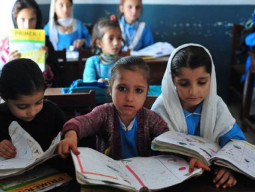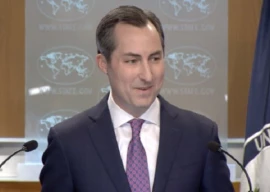
The package was modest (aghaz) but the points so far implemented from the 38-page package are even more modest: 15 out of 61. Now the government says it will “do its best” to implement the package by the end of 2013. It says it has no money, but does it take money to convene the meetings of the concerned committees too? Senator Raza Rabbani, who had spearheaded the formulation of the package, left the committee in frustration. And after him, Interior Minister Rehman Malik, the only troubleshooter in the cabinet, took on the job and was able to convene only one meeting in four months, and that only to inform how miserably the package had failed.
It must have galled Prime Minister Gilani to hear Army Chief General Ashfaq Parvez Kayani implementing his own package in Balochistan to improve the lot of the common man there. His party’s government in Quetta was wobbly to begin with, and inaction on the package has done nothing to improve it, with important party leaders in Quetta threatening to resign and go home. What the Baloch people have lost in these days of lethargy compounded by scandals of corruption are a number of projects that could have made a difference. Most important among them were: A 500-megawatt Dera Ismail Khan-Zhob electricity transmission line; the Sabakzai and Mirani dams; a 300-line telephone exchange for Musakhel district; a cancer ward at the Sandeman Hospital in Quetta; interest-free loans for the mining sector and waiving agricultural loans of up to Rs500,000.
Meanwhile, the upheaval in Balochistan has continued, gas pipelines blown up with dull regularity and railway tracks dug up to disrupt the country’s communication with the province. The trouble in Balochistan is deeper than most people think. It is terrorism instigated from within, not inspired from without, despite our allegation that India is interfering in the province from Afghanistan. The reasons for the Baloch disaffection are all there to be seen. And the non-implementation of the Balochistan package has simply highlighted the rights the people of the province don’t have. The operation of the security agencies against the ‘terrorists’ is of no use if no measures are taken to improve the lives of the people who are in a state of rebellion.
Balochistan sustains its meagre population with great difficulty and this helps explain the sense of alienation, frustration and resentment among its population. They are doing whatever they can, including inflicting violence on the non-Baloch who have lived among them for years. Action taken to curb this violence has given rise to ‘disappearances’ which are now being looked into by the Supreme Court. The solutions suggested by the honourable court have not materialised also because the federal government has not provided relief alongside the recovery of the people who have disappeared over these years of upheaval.
Rehman Malik could have at least initiated action with regard to a commission to determine the circumstances leading to the death of Nawab Akbar Bugti; a judicial inquiry into the allotment of land in Gwadar; finances due to the provincial government on account of flood relief; a special quota in Higher Education Commission scholarships; and rationalisation of the gas royalty formula. The state of affairs in Quetta is that the Balochistan Assembly is without an opposition, since almost every MPA is a minister. However, it is alienated from the centre, which has promised dialogue with it, but delivered little. In such a situation, it is foolhardy to suggest that a foreign power is behind the unrest.
Published in The Express Tribune, March 8th, 2011.
1734685710-0/Untitled-(77)1734685710-0-405x300.webp)
1734682850-0/Untitled-(76)1734682850-0-165x106.webp)
1734680432-0/Untitled-(75)1734680432-0-165x106.webp)

1729161093-0/liam-(4)1729161093-0-165x106.webp)

1734511806-0/Untitled-design-(5)1734511806-0-270x192.webp)
1734587529-0/Express-Tribune-(1)1734587529-0-270x192.webp)


1734468458-0/Copy-of-Untitled-(50)1734468458-0-270x192.webp)







COMMENTS (5)
Comments are moderated and generally will be posted if they are on-topic and not abusive.
For more information, please see our Comments FAQ